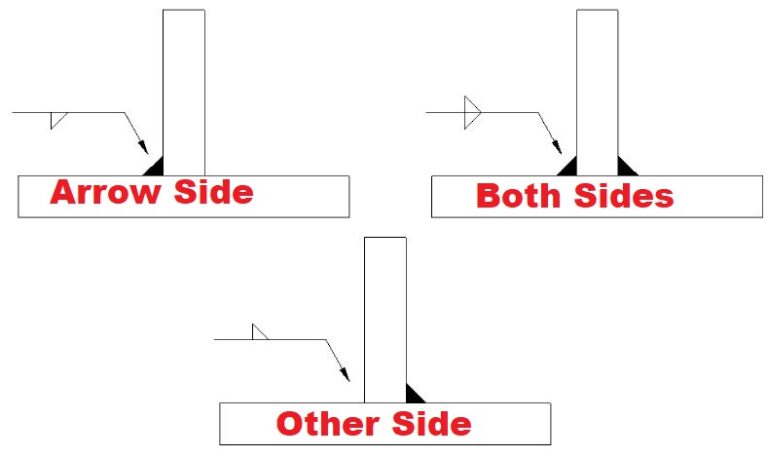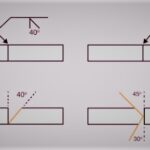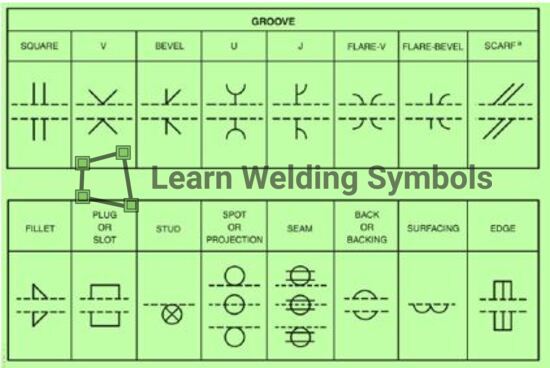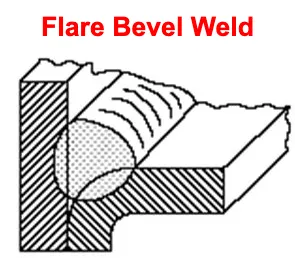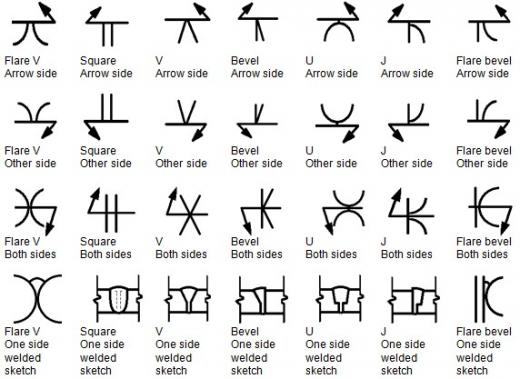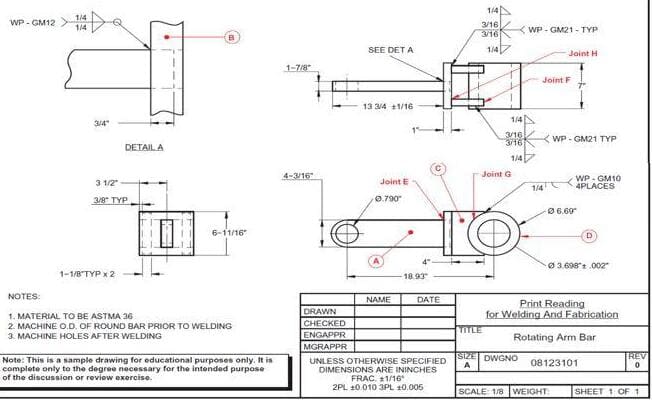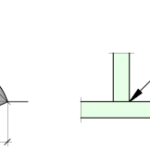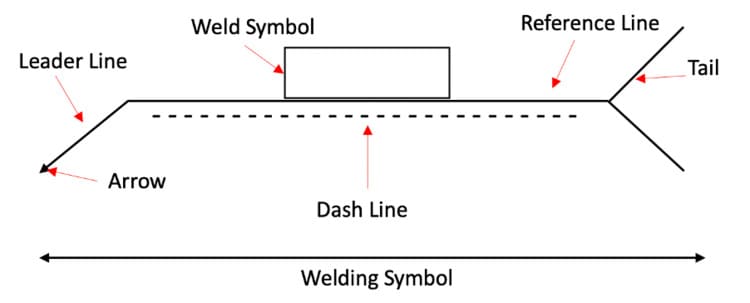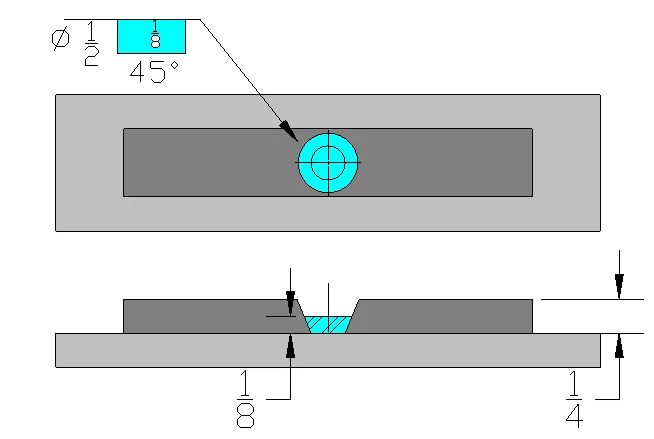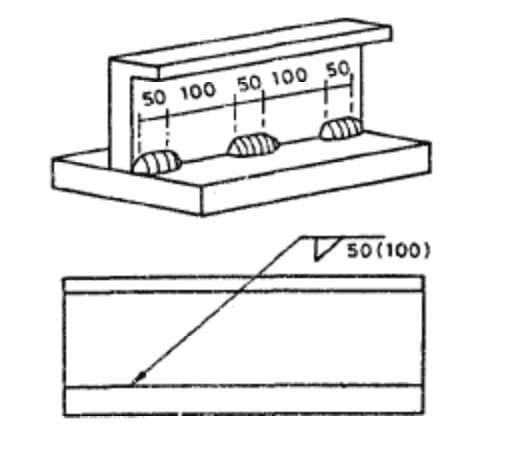Fillet Weld Symbol
Fillet welds are frequently used in the industry and are particularly suitable for joints formed at right angles by two intersecting members. Although they can be applied at various angles, a 90-degree intersection is the most common scenario.
The fillet weld symbol can be represented with an arrow pointing up or down, indicating the location of the weld, either above or below the reference line. It may also be present on both sides of the reference line, in which case it is called a double fillet weld. Regardless of the arrow’s direction, the vertical leg of the symbol always appears on the left.
Single Fillet Weld Symbol
The single fillet weld symbol is used to indicate the location and type of a fillet weld in a joint. It consists of a horizontal reference line and an arrow that points either up or down to indicate the location of the weld.
The symbol is completed by a triangular shape attached to the reference line, representing the fillet weld itself. The size and length of the triangle indicate the dimensions of the weld. The symbol may also include additional information such as the size, length, and spacing of the weld.
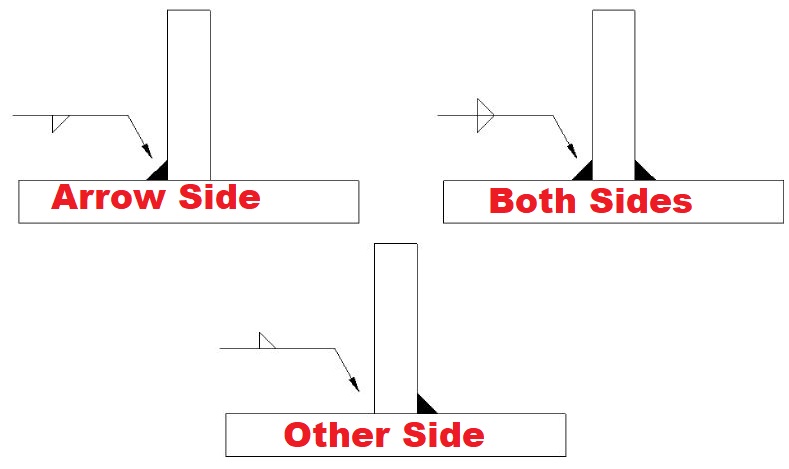
Arrow Side & Other side Fillet Weld Symbol
Here are the weld symbol diagram interpretations for an arrow side and other side fillet weld:
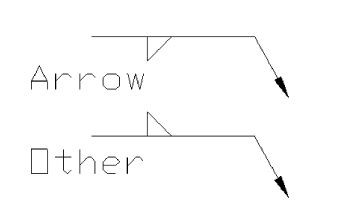
Arrow Side Fillet Weld Symbol:
- The arrow pointing to the joint line indicates that the weld details specified apply to one side of the joint, the arrow side.
- The weld size is specified by the leg length dimension. In this case, it is 5 mm.
- The number of required welds is indicated by the number next to the arrow. Here, it is 2, meaning two fillet welds are required on the arrow side.
Other Side Fillet Weld Symbol:
- Instead of an arrow, an “O” is used to indicate the other side of the joint from the arrow side.
- The weld details, including size and number of welds, apply to the other side of the joint.
- In this example, the other side requires two 6 mm leg length fillet welds.
Both Side Fillet Weld Symbol
A both-side fillet weld symbol is a type of welding symbol used to indicate a fillet weld that is to be applied to both sides of a joint. The symbol consists of two triangles, one above the other, that are connected by a horizontal line. The triangles represent the fillet welds on each side of the joint
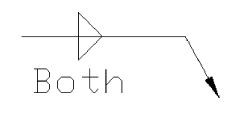
Fillet Weld Size interpretations in a Welding Symbol
Fillet welds can be associated with a size, which is indicated on the left side of the symbol, before the vertical leg. This size corresponds to the leg length of the weld. If a single size is specified, it means that the weld should have equal leg lengths. In the case of an equal leg fillet weld, it is not typical to dimension it on the print, as this is usually assumed by default. However, for demonstration purposes, it may be dimensioned.
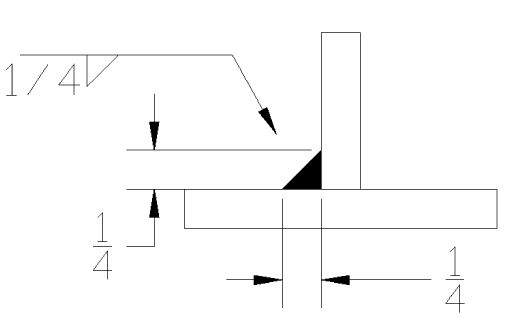
If a double fillet weld is called out the size will be shown for both sides of the joint, depending on the part, these welds could vary in size so it is necessary to provide this information.

The length of a weld may or may not have a dimension associated with it. If no dimension is specified, the weld will be continuous and run the entire length of the joint, regardless of the joint’s size, whether it is 2 inches or 60 inches long.
However, a weld may also be applied to a specific length of a joint, and this must be indicated in the weld symbol to ensure that individuals understand the requirement. The weld length will be specified on the right side of the fillet weld symbol.
